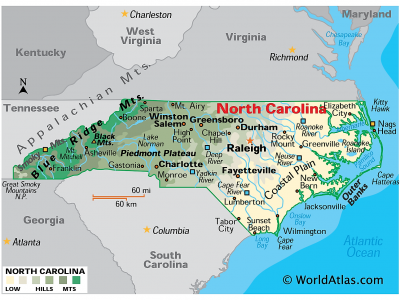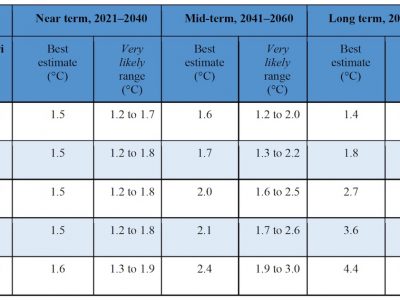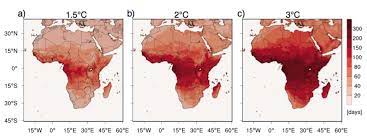Why Local Governments Underproduce Housing
Local control over land-use regulation means local governments focus more on the harms than the benefits of housing
As governments in California and across the United States wrestle with how to address soaring housing costs, a significant flashpoint has been the issue of local control. Most land-use regulation in the United States is done by local governments: cities, counties, towns, villages. In California, much of the legislation intended to increase housing production has sought to strip away or limit local control over land-use regulation. Those legislative efforts have in ...
CONTINUE READINGThe Shock of the Global
What the current fossil fuel energy crisis means for climate and clean energy policy
Pick up any newspaper and it is clear that much of the world is experiencing a series of interrelated energy price shocks. In Europe and the UK, natural gas prices are up by more than 500% over the last year, hitting all-time highs earlier this month. In the US, even with abundant supplies of natural gas as a result of extensive shale gas development, natural gas prices are more than double where they were a year ago. China and India are both running dangerously ...
CONTINUE READINGNorth Carolina’s New Climate Legislation
A major, bipartisan step forward in an unlikely state.
Last week, North Carolina Governor Roy Cooper signed an important piece of climate legislation. I wrote last month about major, bipartisan climate legislation in Illinois. Like the Illinois law, the North Carolina law enjoyed broad bipartisan support. The North Carolina legislature is under firm Republican. Nevertheless, the bill passed the state senate by a 42 to 7 vote and the state house by 90 to 20, before being signed by the Democratic governor. North Carol...
CONTINUE READINGDelayed harm and the politics of climate change, reconsidered
How much does zero emissions warming commitment matter, and what are its political implications?
The world is gathering soon in Glasgow to debate how to eliminate greenhouse gas emissions over the coming decades. But what happens when we achieve the goal of zero carbon dioxide emissions from human actions? Does the climate keep warming, stay the same, or even cool? It turns out this is a critical question for understanding what carbon budgets we have in terms of emissions, if we seek to meet temperature thresholds like 2 degrees Celsius. If warming will continue to ...
CONTINUE READINGReforming the California Endangered Species Act
Updating the state's landmark biodiversity law for the twenty-first century
California has a rich heritage of biodiversity, with many species found nowhere else in the world (including the iconic giant sequoia trees). But California’s biodiversity faces grave threats – pressures from development that eliminates habitat; water shortages that harm aquatic species in California’s rivers; and climate change impacts that are shifting and altering habitats, among others. Governor Newsom has made protection of California’s biodiversity a pr...
CONTINUE READINGNever Give Up. Never Surrender.
Even if we miss our targets, simply shaving or flattening the carbon curve would be worth fighting for.
Although lacking the same eloquence, today’s post is in the spirit of Churchill’s famous speech promising that Britain would “fight on the beaches, … we shall fight in the hills; we shall never surrender.” My point is this: No matter how many battles we end up losing in the fight to stop carbon emissions, we can never afford to give up. It’s not hard to see why some people despair about the climate. The Paris Agreement’s goal is to keep global warming we...
CONTINUE READINGClimate and Colonialism: Some Columbus Day Thoughts
Is climate change itself a form of colonialism?
“In 1492, Columbus sailed the ocean blue.” That’s what we learned in my grade school. Today, Columbus Day remains a day of celebration for some but has become a symbols of colonialism for others. Rather than entering that debate, I’d like to reflect on how issues of colonialism might relate to climate change. The study of colonialism and post-colonial societies is now a major academic focus. I don’t purport to be an expert on that. It seems to me that, at it...
CONTINUE READINGReport from Planet X
Help, our energy system screwed up our planet!
A long time ago, in another galaxy far far away . . . . Dear Galactic Governance Collaborative, Those of us who colonized Planet X now find ourselves in dangerous straits. We request urgent assistance due to escalating environmental instability. You're thinking it's not easy to screw up an entire planet. You're right about that. Sadly, though, it's also not impossible. Yeah, that's what we did. Yes, we know that we'll be interstellar laughingstocks for having b...
CONTINUE READINGAfrica in 2050
The continent will face vast challenges. Dealing with them is a global priority.
Take explosive population growth, acute vulnerability to future climate change, and social vulnerability. Stir well and bake. That’s a recipe for trouble. It’s also Africa in 2050. Overcoming the resulting problems is among humanity’s greatest challenges. Currently, 490 million Africans live below the extreme poverty level ($2/day per person). The number is rising but the percentage is going down, because the overall population is growing faster than the nu...
CONTINUE READINGThe Origins of Climate Awareness in the Legal Academy
Forty years ago, the legal academia was getting its first glimmering about climate change.
Today, climate change is the central, though by no means the only, concern in environmental law. Awareness of the issue began slowly, however. Westlaw searches for “global warming” and “greenhouse effect” pick up only a handful of citations before 1985. The earliest mentions of these terms in the law review literature came in the late 1970s, and only one of the pre-1985 discussions took a comprehensive look at the problem. I found only one relevant reference u...
CONTINUE READING










